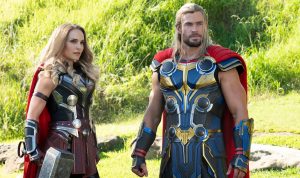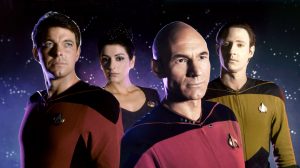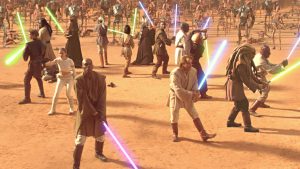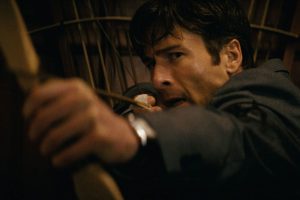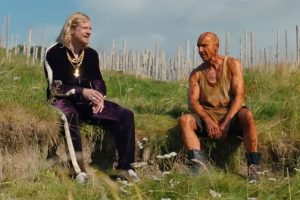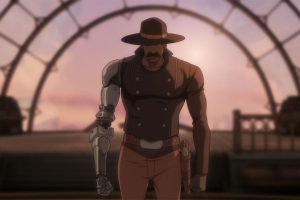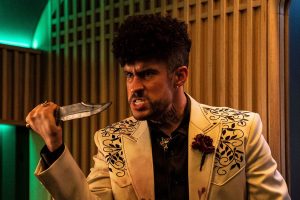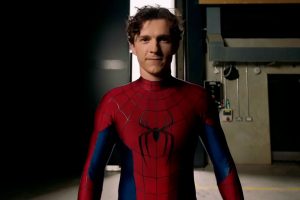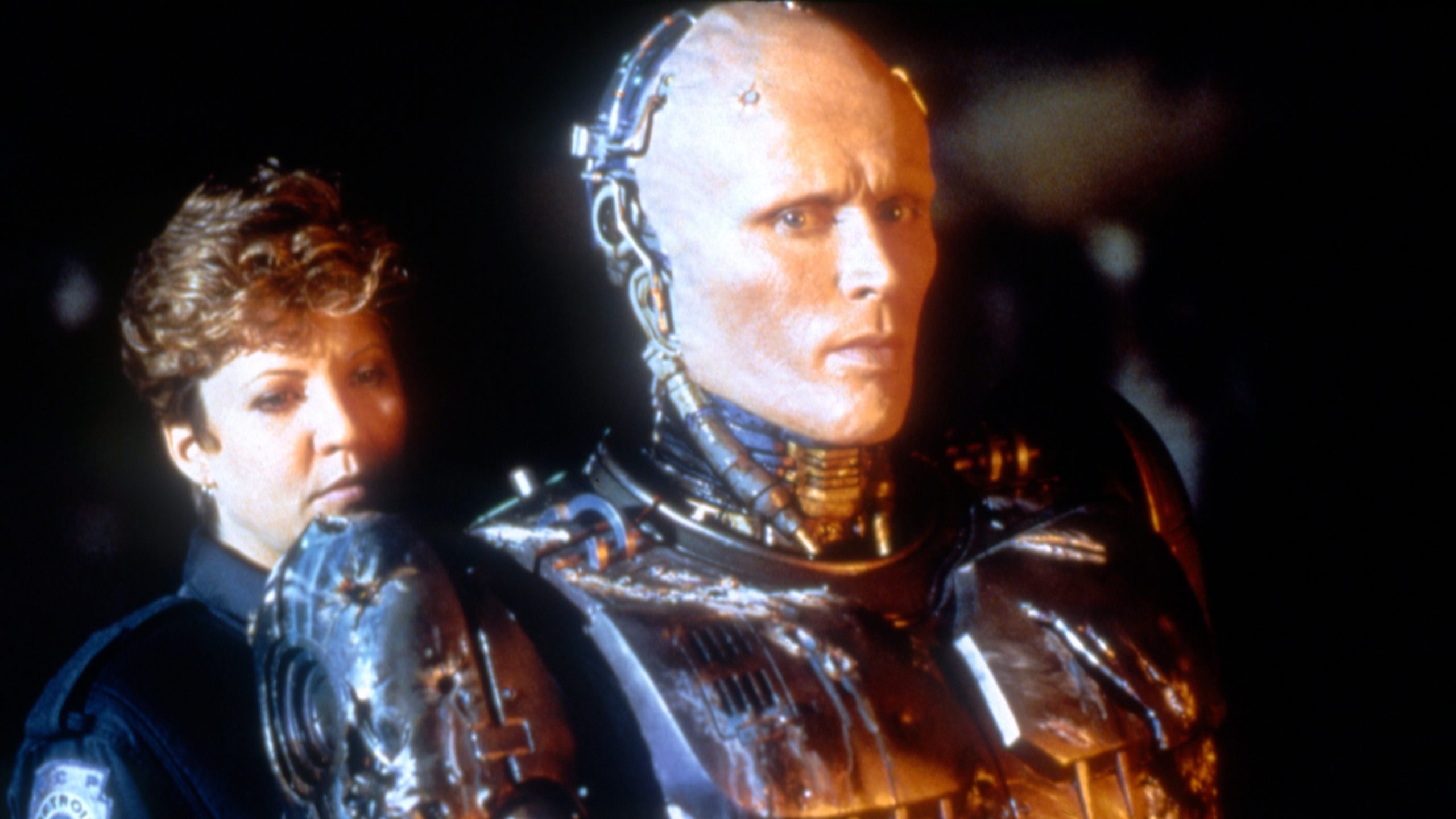
Alex Murphy is back. According to Deadline, director James Wan will produce a new RoboCop TV series for Amazon and MGM, with Ladder 49 creator Peter Ocko as showrunner.
Some people might roll their eyes at that idea, and not just because every RoboCop entry since the original movie has been various degrees of disappointing. They roll their eyes because they think Alex Murphy’s story came to a natural close at the end of the 1987 film. They see the final conversation as a fairly happy ending, in which Murphy (Peter Weller) recovers his identity and gets to be a person again.
That interpretation leaves the franchise with nowhere else to go, so a TV show seems like the worst possible idea (see also, the 2001 Canadian TV miniseries RoboCop: Prime Directives). But if one takes a more cynical look at the final line, then the themes of RoboCop remain open, leaving space for Wan and Ocko to work.
At the climax of RoboCop, the titular hero makes his way to Omni Consumer Products headquarters to confront Dick Jones (Ronny Cox), the executive who colluded with crime boss Clarence Boddiker (Kurtwood Smith) to make Old Detroit so dangerous that it will have to be razed and replaced with Delta City.
But as he faces down Jones, RoboCop discovers his classified fourth Prime Directive, “Any attempt to arrest a senior officer of OCP results in shutdown.” So he can do nothing until the OCP President (known only as “the Old Man” and played by Dan O’Herlihy) fires Dick, allowing RoboCop to gun the baddie down, in a glorious bit of 1980s violence.
As RoboCop walks out the door, the Old Man asks the robot to say his name. “Murphy,” RoboCop answers, and the movie cuts to black.
For many fans, Murphy’s declaration gives RoboCop a triumphant ending. OCP stole Alex Murphy’s life when Bob Morton (Miguel Ferrer) arranged to have him transferred to a more dangerous precinct, leading to Murphy’s execution at the hands of Boddiker. Throughout the film, RoboCop starts recovering Murphy’s memories. In fact, his investigation into Murphy’s murder, which he conducts against the wishes of Detroit PD and OCP, lead to the revelations about the connection between Omni and Boddiker.
So when RoboCop refers to himself as “Murphy,” some fans believe that his quest is complete. Murphy has solved the crime and reclaimed his identity.
That’s a completely reasonable reading. But it does seem a bit optimistic, especially for a film as acidic as RoboCop. Written by Edward Neumeier and Michael Miner and directed by the Dutch provocateur Paul Verhoeven, RoboCop exists to provoke, from the director’s claims that he’s telling the story of the American Jesus to the movie’s combination of extreme violence and broad humor. None of the creators seem too interested in giving the hero a happy ending.
A more tonally consistent interpretation would read the final exchange as a victory for OCP and the Old Man, not for Alex Murphy. Although Dick Jones preferred the more imposing ED-209, the Old Man knows the importance of appearances. Just look at the advertising for clean and shiny Delta City, or his folksy “Old Man” persona. The success of the RoboCop program isn’t just about OCP getting its own police force, thereby gaining a cop’s latitude to punish and kill where the cop sees fit. OCP also needs the public to go along with it, to be willing participants in their own subjection.
When RoboCop finally identifies himself as “Murphy,” the Old Man gets what he wants. A robotic killing machine with a human face. Something that looks like a person, capable of empathy and care, but acts like a lethal weapon.
It’s not hard to understand why viewers in 1987 would miss the darker implications of the final moment. Like he would do again later with Starship Troopers, Verhoeven uses the language of action movies to portray “heroes” doing horrible things. And in the 1980s, movie cops managed to be horrible and heroic without Verhoeven’s help. Lethal Weapon, Beverly Hills Cop, and Cobra all end with the good guys shooting the bad guys. One year after RoboCop, Die Hard will end with Sgt. Powell (Reginald VelJohnson) overcoming the guilt he feels after shooting an unarmed kid to kill Hans Gruber, a moment that director John McTiernan presents without irony or shame.
While cop movies and TV shows are even more prevalent today, modern viewers have a greater understanding of copaganda, media made to make American policing appear humane and necessary. And what is RoboCop, a killing machine with the face of a human, if not walking copaganda?
With a happy ending, RoboCop has nowhere else to go, which is partially why every spin-off and sequel has failed (except for Frank Miller and Walt Simonson’s RoboCop Versus The Terminator comic; that still rules).
But the more cynical ending leaves open storytelling potential. Is Murphy actually still in there? And, if so, can he fully break free from the corporate-friendly murder bot he’s become? How does the rest of the world feel about RoboCop masquerading as Murphy? Will his family, or even his partner Lewis (Nancy Allen), undo the abomination OCP made? Will the people just accept a hunk of flesh stretched across a piece of cold metal?
If Wan and Ocko want to succeed where everyone else has failed and tell a RoboCop story worthy of the first movie, they’ll need to get past the unearned happy ending that so many see and embrace the more cynical, and rich, approach.
Amazon and MGM have not yet announced a release date for the RoboCop TV series.
The post The RoboCop TV Show Will Only Work If It Breaks From the Movie’s Most Misunderstood Scene appeared first on Den of Geek.


